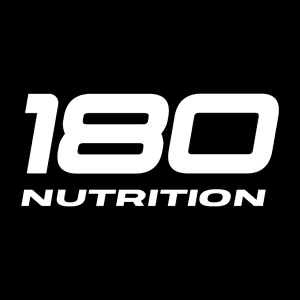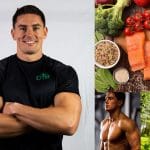
Why Do We Need Vitamin D?
180 Nutrition: Maintaining adequate levels of Vitamin D is ‘really‘ important as it’s involved in a multitude of physiological functions. It’s used to regulate the absorption of minerals in the body, it facilitates normal immune system function and is important for the development of healthy bones and teeth.
It can be particularly beneficial during cold and flu season as it can help to reduce your likelihood of developing influenza and other respiratory related issues, according to recent clinical study from PubMed.
Here are some of the benefits of getting your recommended daily allowance of Vitamin D per day:
Regulates calcium absorption
Vitamin D helps the body to absorb calcium which is required to build and maintain healthy bones. Too little, or indeed too much calcium, can have detrimental effects on the body, so it’s important that the absorption is regulated which is where Vitamin D steps in. Without adequate levels of Vitamin D, the calcium that you get from nutrition is excreted through the kidneys as part of the flushing process.
Protect cells from damage
Vitamin D is central to the cell rejuvenation process and is required for healthy cell growth. A study conducted by the NCBI found that there may be links between vitamin D deficiency and premature deaths from a variety of cancers including breast, ovarian and prostate.
Supports your immune system
Vitamin D reduces inflammation and improves your immune system to reduce your risk of illness and contribute to overall better long term health. Vitamin D deficiency has been linked to decreased lung function, which may affect your body’s ability to fight respiratory infections.
Regulates your mood
According to the Vitamin D Council, studies have shown that Vitamin D receptors have been found in the brain in the specific areas where depression develops identifying a potential link between depression and Vitamin D. It’s thought that serotonin production is promoted by Vitamin D which also has an effect on your overall mood.
Getting adequate Vitamin D is essential to the overall wellbeing of your body and mind, but it’s difficult for many people to reach the RDA of 2000 IU a day from food alone. Here are our five top tips to make sure your Vitamin D intake stays within the recommended range to avoid health consequences in future.
How Do We Get It?
Get enough sunshine
The sun is the most natural and beneficial source of Vitamin D, but it’s also the biggest source of skin cancer. In the summer, spend ten minutes a day in the sun before 10.00 am and after 3.00 pm. In the winter, increase this to 20 minutes a day. Don’t forget; the sunscreen which prevents skin cancer also prevents the Vitamin D getting into your body, so use your own discretion here.
Exercise daily
New research from the Harvard School of Public Health has linked regular exercise to higher levels of Vitamin D. Whether this is because it helps to retain Vitamin D from or whether this is a direct result of spending more time in the sun food is yet to be confirmed.
Eat foods high in Vitamin D
It can be hard to reach the RDA of Vitamin D through food alone, but foods that are notably high in Vitamin D are fish oil (1,300 IU per teaspoon), salmon (400 IU per 100g) and other fatty fish, cheese, and mushrooms (100 IU per 100g).
Eat foods high in calcium
While you need Vitamin D to absorb calcium, you also need calcium to absorb Vitamin D. While the calcium itself won’t cause an increase in Vitamin D; it will retain the Vitamin D that’s in your body so it can be used effectively.
Take a supplement
If you’re deficient in Vitamin D (your doctor can identify this through a simple blood test), supplements are available. Always speak to a medical professional before taking supplements because too much Vitamin D can be as harmful as too little. An excess of Vitamin D will lead to too much calcium absorption which can cause heart disease.
So you see now that Vitamin D is essential to help your body function at its best; if you think you might be deficient, arrange an appointment with a healthcare professional who can confirm this through a simple blood test and offer advice on how you can rectify the deficiency quickly and safely.





